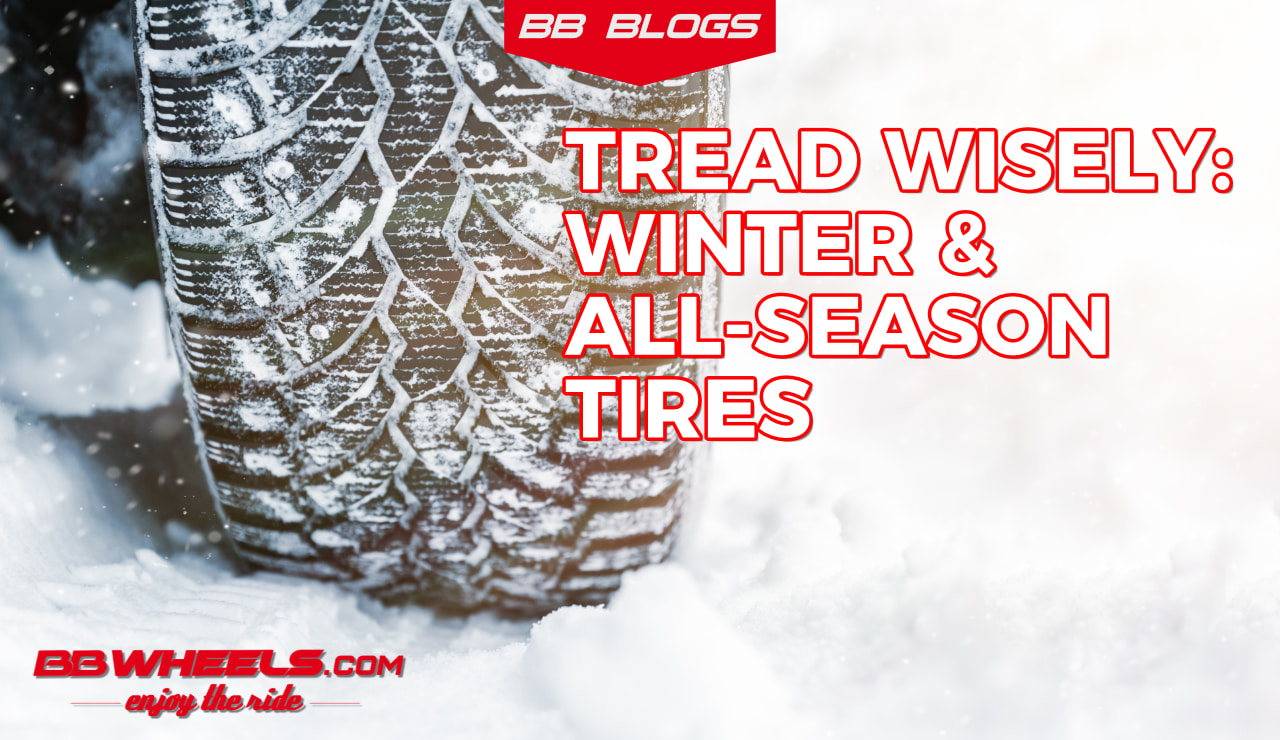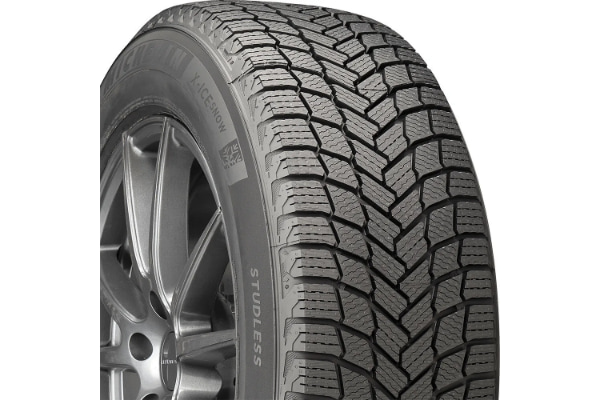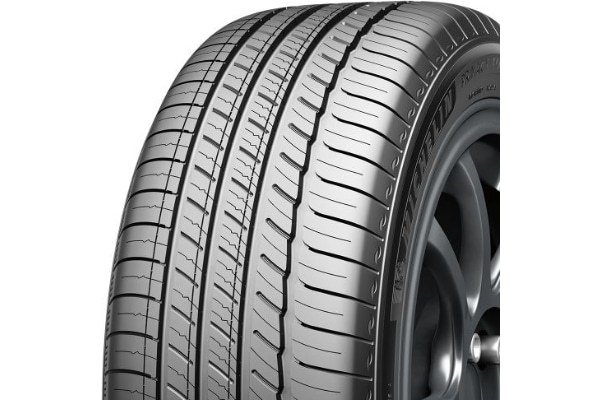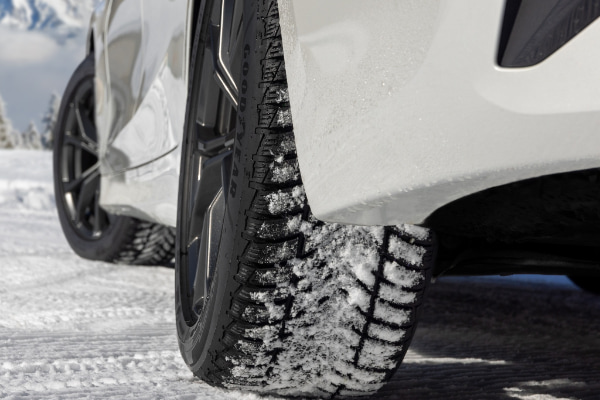Winter vs. All-Season Tires: A Detailed Comparison for Safe Driving
Posted by BB Wheels on 9th Jan 2024

Winter vs. All-Season Tires: A Detailed Comparison for Safe Driving
When it comes to choosing tires for your vehicle, understanding the differences between winter and all-season tires is crucial, especially if you live in an area with diverse weather conditions. This blog post will delve into the key differences between these two types of tires and provide guidance on how to select the right option for your driving needs.
Understanding the Basics
All-Season Tires: Designed to provide a balanced performance in a variety of conditions including wet roads and light winter driving, all-season tires are a popular choice for drivers in many climates. They offer a combination of good tread life, a quiet ride, and fuel efficiency.
Winter Tires: Winter tires, also known as snow tires, are specifically designed for cold temperatures and winter precipitation. They are made from a softer rubber compound which remains flexible in cold weather, ensuring better traction on snow and ice.
Tread Patterns and Rubber Compounds
The most noticeable difference between these two types of tires is in their tread design and rubber composition.
Winter Tires: They feature deep grooves and unique tread patterns designed to grip snow and ice, as well as a high number of sipes (small slits) that provide additional points of contact with the road. The softer rubber compound in winter tires remains supple in cold temperatures, enhancing grip.

All-Season Tires: These tires have a simpler tread pattern compared to winter tires, designed to handle a variety of road conditions but not specialized for any extreme. The rubber compounds in all-season tires harden in cold temperatures, which can reduce their grip on icy or snowy roads.

Performance in Snow and Ice
Winter tires outperform all-season tires in snowy and icy conditions. The specialized tread design allows them to bite into snow and ice, and the flexible rubber compound maintains traction even in extremely cold weather. In contrast, all-season tires may struggle to provide adequate grip in severe winter conditions.
Driving in Temperatures Below 45°F (7°C)
Even if there is no snow or ice, winter tires are recommended in temperatures below 45°F. This is because the rubber in all-season tires begins to harden as the temperature drops, which can lead to decreased traction and longer stopping distances.
Longevity and Cost
Winter Tires: Due to their soft rubber compound, winter tires tend to wear faster in warmer conditions. It's advisable to switch back to all-season or summer tires once the temperature rises.
All-Season Tires: They generally have a longer tread life under normal driving conditions. However, using all-season tires in harsh winter conditions can also lead to quicker wear.
Making the Right Choice
Consider Your Climate: If you live in an area with mild winters, all-season tires might be sufficient. However, for regions with heavy snowfall and prolonged cold temperatures, winter tires are essential for safe driving.

Think About Your Driving Habits: If you frequently drive in snowy or icy conditions, the enhanced safety of winter tires is invaluable.
Budget for Two Sets of Tires: If you opt for winter tires, plan on purchasing a set of all-season or summer tires for the warmer months to ensure both sets last longer.
Final Thoughts:
Choosing between winter and all-season tires boils down to your local climate conditions and driving needs. Winter tires offer unbeatable performance in snowy and icy conditions, while all-season tires provide a good balance for year-round driving in milder climates. Always prioritize safety and consider investing in two sets of tires to navigate different seasons effectively. Remember, the right tire can make a significant difference in your vehicle's handling and safety.
If you're unsure which type of tire is best for your vehicle or if you have any questions about tire selection, the experts at BB Wheels are here to help. With a wide range of options and knowledgeable staff, we can assist you in making the best choice for your specific needs. Give us a call at 320-333-2155, and let us help you drive with confidence, no matter the season!
Drive safe and smart with the right tires from BB Wheels!

